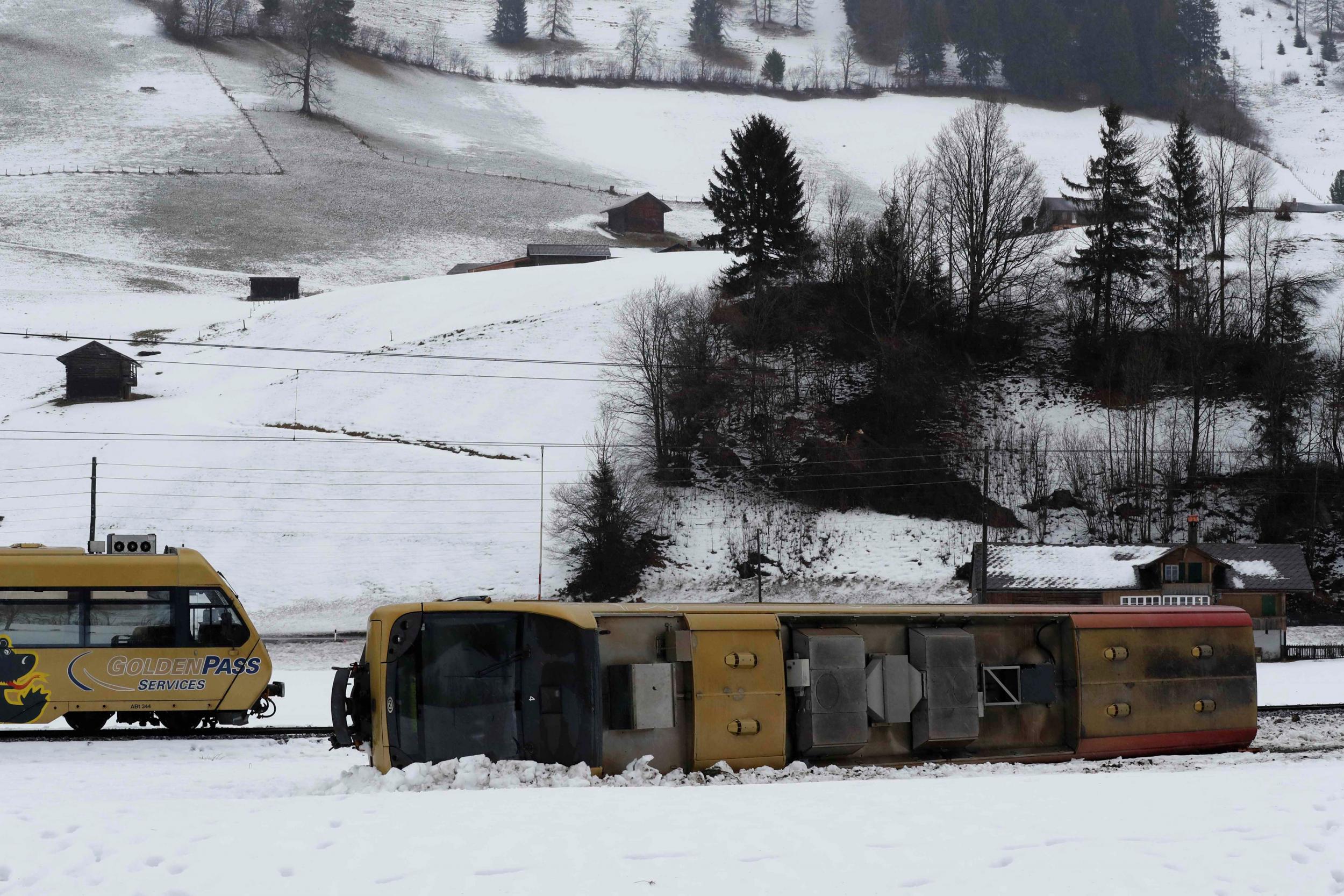UK weather latest: Britain to be gripped by freezing temperatures as Storm Eleanor departs
Public Health England issues warning as temperatures set to plummet as low as -10C
A cold snap is to grip the UK as clear-up efforts continue in the the wake of Storm Eleanor, which lashed the country with heavy rain and gale-force winds.
Freezing temperatures and widespread frost are forecast to sweep south through Britain during the weekend, with parts of Scotland set to plummet as low as -10C on Saturday night.
Winds are expected to ease after gusts of up to 90mph plunged tens of thousands of homes into darkness and disrupted travel.
But large parts of the country will remain at risk of flooding for several days, warned the Environment Agency, following persistent rain.
Storm Eleanor caused power cuts to around 25,000 properties in Northern Ireland, with hundreds still without electricity on Thursday morning, as it swept across northern Europe.
Forecasters warned more severe weather is on the way, with temperatures set to plunge to -10C in rural areas of Scotland, -6C in northern England and -3C in the south.
Met Office spokesman Oly Clayton told The Independent: “We’ll really start to feel it on Friday night into Saturday, when high pressure starts to move in from the north, making its way further south through the day on Saturday.
“By the time we get to the end of the day on Saturday, most of the UK should be in those colder conditions with a north-easterly breeze. Through Sunday, especially across the south and east, the breeze will make things even colder; there’ll be a fairly noticeable wind chill.”
But there will be no repeat of the snow that fell on parts of the UK between Christmas and New Year, said Mr Clayton, with the high pressure bringing “much calmer, clear, sunny conditions”.
Public Health England issued a warning ahead of the cold snap.
Dr Thomas Waite, of the organisation’s extreme events team, said: “When temperatures fall, the number of people having illnesses such as chest infections, heart attacks and strokes goes up – as their bodies struggle to work harder in colder conditions.
“Heating homes to at least 18C, wearing several thin layers instead of fewer thicker ones, and checking up on older people, young children and those with heart and lung conditions will all help keep people well over the coming days.”
Hundreds of homes remained without power on Thursday morning after Northern Ireland Electricity emergency crews worked through the night to restore supply to thousands of properties left in the dark following Storm Eleanor.
More than 70,000 homes across England were also hit by blackouts, which have since been resolved.
Wind speeds reached 90mph at Orlock Head in Northern Ireland on Tuesday evening, the Met Office said. Gusts of up to 89mph were recorded on the Isle of Wight, and gusts of more than 70mph were recorded across much of the UK.
Fallen trees caused a number of road closures and injuries, including to a man in Worcestershire and another in Wales, according to the Met Office.
A harbour wall collapsed in Portreath, Cornwall, and a respite centre was set up for seafront residents at risk of flooding, although the high tide was not as bad as feared.
The Severn River Crossing and the Orwell Bridge in Suffolk were closed in the early hours due to strong winds.

A body was recovered from the sea near Splash Point in Seaford, East Sussex, on Wednesday morning. It is not yet clear whether the person was swept into the water.
Flooding risks could remain for coastal areas for several days, the Environment Agency warned, as it urged people not to attempt “storm selfies”.
Flood duty manager Neil Davies said: “As the unsettled weather continues, large waves combined with high tides could lead to coastal flooding over the next few days, particularly in the west and South-west of England.
“We urge people to stay safe on the coast, take extreme care on coastal paths and promenades, and don’t put yourself in unnecessary danger.”
The Environment Agency had 25 flood warnings in place on Thursday morning, along with 131 flood alerts.
The Thames Barrier was closed to protect London from flooding, while Hull’s tidal surge barrier was employed to protect 17,000 properties.
Nationwide rail services, including one of the main routes into London, were also disrupted by debris fallen on tracks.
Overhead wires between Hayes and Harlington and London Paddington were damaged by the storm, forcing journeys to be delayed, and a fallen tree on the line caused major delays on Wednesday between Cambridge and London King's Cross.

Storm Eleanor also brought chaos elsewhere in Europe as it swept over much of the continent’s north.
Two people were killed after being swept away by a huge wave on Spain’s northern Basque coast and a skier died in the French Alps.
In northern France, the storm cut power to more than 200,000 properties, while the Eiffel tower and parks in Paris were closed because of strong winds.
Meanwhile, in the US, heavy snow and high winds have pounded the east coast, knocking out power, icing over roadways and closing hundreds of schools.
A state of emergency has been declared in Florida, Georgia, North Carolina and Virginia as much of the country’s east remains in the grip of a sustained cold spell that has frozen part of Niagara Falls and played havoc with public works.
Join our commenting forum
Join thought-provoking conversations, follow other Independent readers and see their replies
Comments
Bookmark popover
Removed from bookmarks